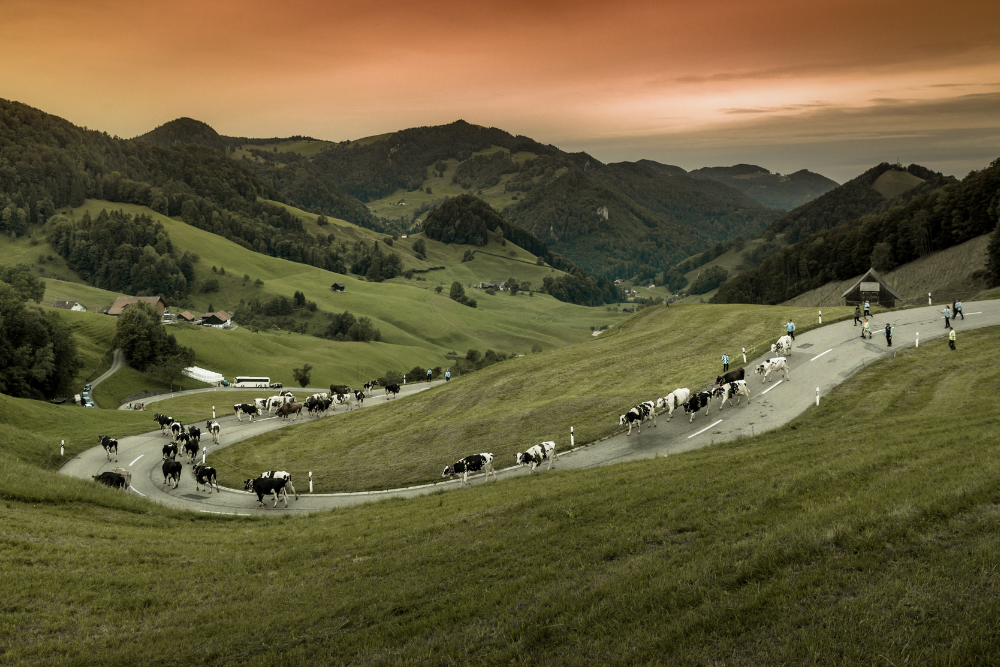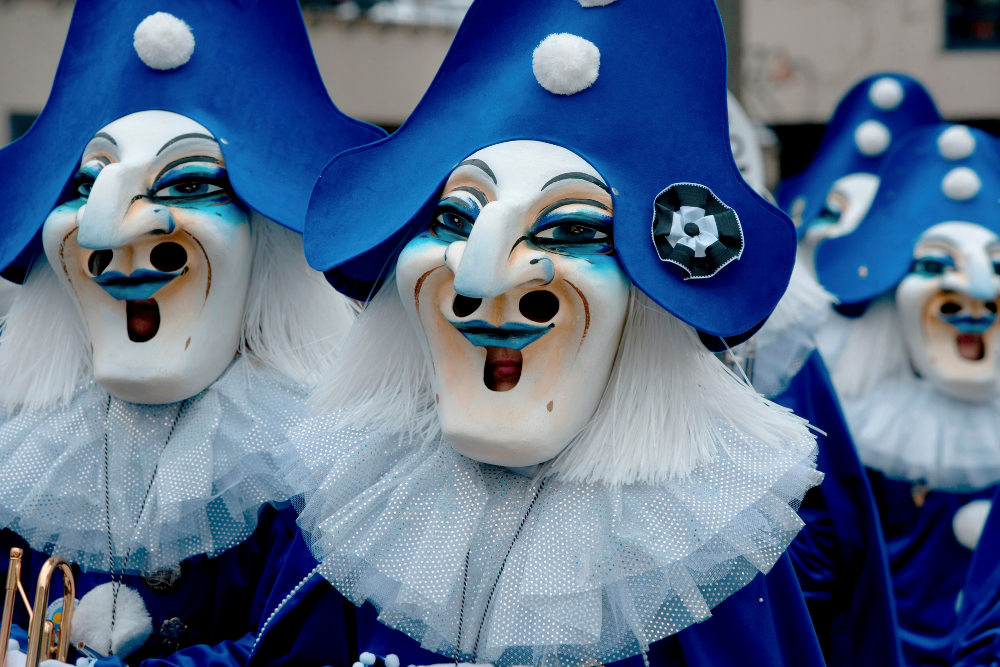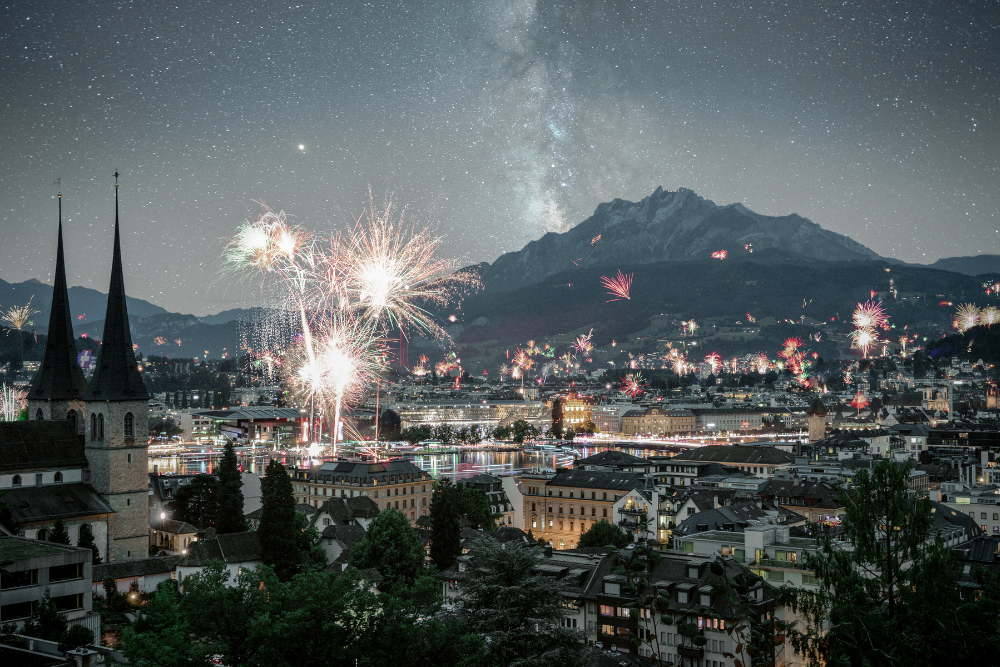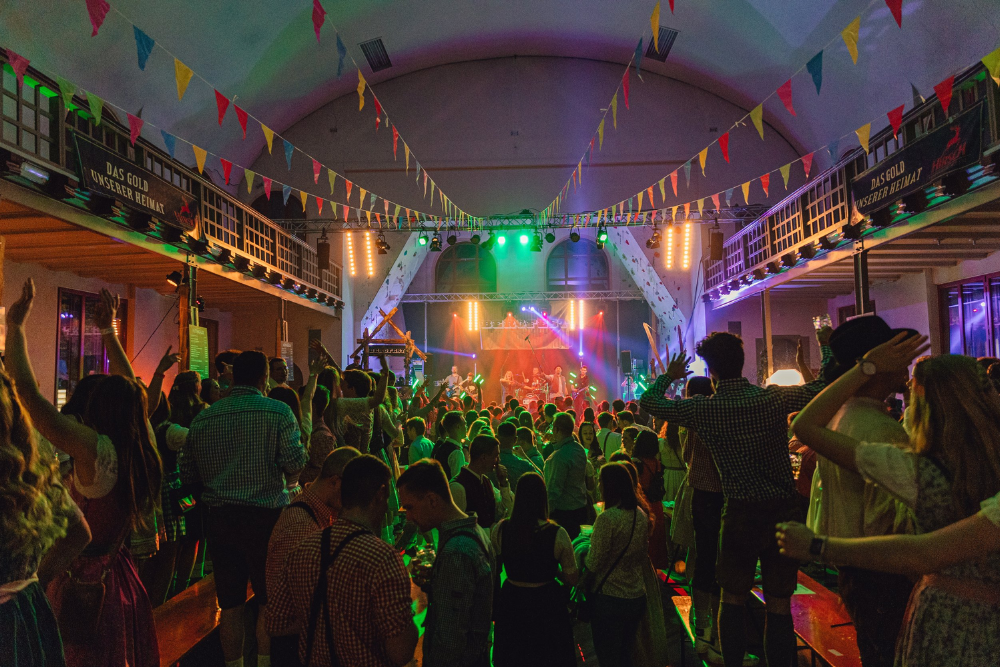Switzerland is famous for its stunning alpine landscapes, charming villages, and rich cultural traditions, many of which come to life in the form of mountain festivals. These events celebrate the country’s deep connection to the mountains, its agricultural roots, and the vibrant local customs that have been passed down through generations. From lively cattle parades to music-filled celebrations of regional pride, Switzerland’s mountain festivals offer a unique and immersive way to experience the country’s heritage. If you’re looking to dive into the heart of Swiss culture, here’s how to experience some of the most treasured traditional mountain festivals.
1. The Alpabzug – Cattle Drives in the Swiss Alps
When: September
Where: Various Alpine regions, including Appenzell, Grisons, and Emmental
One of Switzerland’s most iconic traditions, the Alpabzug (or Alpabfahrt), is a cattle drive that marks the end of summer grazing in the high Alps. In September, cows that have spent the summer months in the mountain pastures are brought down to their home farms in a colorful and festive parade. This event is a blend of agriculture, tradition, and local pride.
Experience the Alpabzug:
- Witness the Parade: The cows, adorned with flower garlands and elaborate cowbells, descend from the mountains in a magnificent procession. The animals are often accompanied by their herders and villagers, dressed in traditional Swiss attire.
- Enjoy Regional Delicacies: As the cattle are driven into town, you’ll find local food stalls offering cheese, sausages, and freshly baked breads. Don’t miss the chance to taste Swiss cheese made from the milk of the Alpine cows.
- Music and Dancing: In many villages, the arrival of the cows is celebrated with local music, dancing, and community feasts, creating an atmosphere of joy and camaraderie.
Where to Go:
Popular places to experience the Alpabzug include Appenzell, Emmental, and the Grisons region. Each area has its own version of the festival, with unique traditions and customs.
2. Fasnacht – The Carnival of the Swiss Alps
When: Late February to early March
Where: Basel, Lucerne, and various mountain towns
While Fasnacht is more famously celebrated in the city of Basel, many mountain towns in Switzerland also hold their own versions of this lively carnival. Fasnacht is a time when locals embrace masks, costumes, and traditional performances to bid farewell to winter and welcome spring.
Experience Fasnacht in the Alps:
- Traditional Costumes and Masks: Participants wear intricate masks, often representing animals or mythical creatures, and colorful costumes. In some mountain towns, you’ll see groups of people with noisemakers, lanterns, and drums parading through the streets.
- Music and Dance: The sound of traditional Fasnacht music fills the air, with brass bands playing Alpine tunes. In some towns, you might find yodeling performances that are unique to certain regions.
- Street Food and Drinks: During Fasnacht, it’s common to find stalls offering Swiss doughnuts (known as Fasnachtschüechli), hearty soups, and hot mulled wine to keep you warm.
Where to Go:
While Basel and Lucerne are the most famous Fasnacht celebrations, smaller mountain towns such as Engadine and Grindelwald also host unique carnivals that showcase the Swiss Alpine version of the festival.
3. The National Day of Switzerland – Celebrating Swiss Heritage
When: August 1st
Where: Nationwide, with special celebrations in the mountains
Switzerland’s National Day on August 1st is a celebration of the country’s independence and cultural unity. While festivities take place across the country, the mountain regions offer a special atmosphere for celebrating this national holiday.
Experience National Day in the Mountains:
- Fireworks and Bonfires: In many mountain towns, bonfires are lit to symbolize the country’s independence, and fireworks light up the night sky. These celebrations often take place against the backdrop of the Swiss Alps, creating a magical setting.
- Traditional Music and Dance: Enjoy performances of Alphorn music and traditional Swiss dances. Locals often dress in regional costumes to celebrate their cultural heritage.
- Community Celebrations: Many mountain villages host community gatherings, where you can enjoy local cheese, meats, and bread, alongside regional drinks such as Swiss wine or beer.
Where to Go:
Major Swiss towns like Zurich and Bern have impressive celebrations, but in the mountains, places like Zermatt, Grindelwald, and Saas Fee provide a more intimate and picturesque National Day experience.
4. The Savoie Festival – A Celebration of Mountain Culture
When: Late June
Where: Villages in the Valais and Vaud regions
The Savoie Festival is a unique celebration of mountain culture, where locals gather to showcase traditional crafts, music, and agriculture. Held in the stunning Valais region, this festival offers a deep dive into the traditional mountain lifestyle.
Experience the Savoie Festival:
- Craftsmanship and Artisan Markets: Local artisans display handmade products, including woolen goods, wood carvings, and leatherwork, reflecting the alpine craftsmanship that has been passed down through generations.
- Traditional Alpine Sports: Watch demonstrations of Alpine sports such as sheepdog trials, yodeling competitions, and cross-country skiing.
- Mountain Cuisine: Taste hearty mountain fare, including raclette, fondue, and locally produced honey and herbal teas.
Where to Go:
The Valais region, particularly around Sion and Zermatt, is known for hosting the Savoie Festival, though other mountain villages in the Vaud region also hold similar events.
5. The Fête de l’Escalade – A Winter Festival in Geneva
When: December 12th
Where: Geneva, though celebrated in surrounding alpine regions
Although not specifically an Alpine festival, the Fête de l’Escalade in Geneva is deeply tied to Swiss mountain history. The festival commemorates the successful defense of the city in 1602 against an invasion by the Duke of Savoy.
Experience the Fête de l’Escalade:
- Historical Reenactments: Watch performances that reenact the famous defense of Geneva, including mock battles, torch parades, and dramatic readings.
- Traditional Swiss Sweets: The festival is famous for its sweet treats, especially the Escalade chocolate, shaped like a pot and filled with marzipan.
- Winter Celebrations: Geneva is known for its Christmas markets and festive decorations, and during the Fête de l’Escalade, the city takes on a particularly festive atmosphere.
Where to Go:
Geneva is the heart of the Fête de l’Escalade, but nearby mountain regions also participate in the holiday festivities.
6. The Bergfest – Mountain Music and Feasts
When: Summer
Where: Various mountain villages in Switzerland
The Bergfest is a celebration of Swiss mountain culture, where people gather to enjoy mountain music, folk dance, and traditional food. It is often held in the summer months to take advantage of the pleasant weather in the Alps.
Experience the Bergfest:
- Alpine Music and Dance: The festival features performances of Alphorn music, yodeling, and traditional Swiss folk dances that have been passed down for centuries.
- Mountain Feasts: Sample classic Swiss mountain dishes, such as fondue, raclette, and rosti, often accompanied by locally brewed beer or homemade schnapps.
Where to Go:
The Engadine region, Grindelwald, and Arosa are known for hosting wonderful Bergfest celebrations, offering a full day of entertainment in the Swiss mountains.
Conclusion
Experiencing Switzerland’s traditional mountain festivals is an unforgettable way to immerse yourself in the country’s rich cultural heritage. Whether you’re witnessing the grand Alpabzug cattle drive, enjoying the lively parades of Fasnacht, or celebrating Swiss National Day in the mountains, each festival offers a unique opportunity to connect with the local culture. By attending these events, you’ll gain a deeper understanding of Swiss traditions, explore the beautiful alpine landscapes, and enjoy the warmth and hospitality of the mountain communities. So pack your bags, head to the Swiss Alps, and join in on the celebrations—there’s no better way to experience Switzerland’s vibrant mountain culture.












